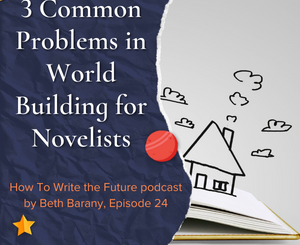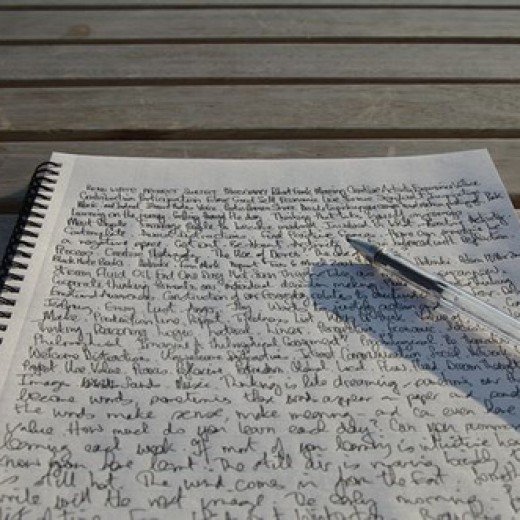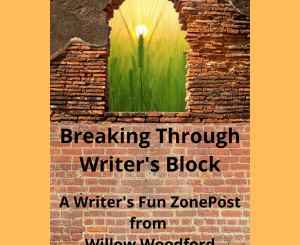What Makes You a “REAL” Writer by Willow Woodford
 Welcome new columnist to Writer’s Fun Zone, Willow Woodford, share about what makes you a “real” writer. It’s probably not what you think. Enjoy!
Welcome new columnist to Writer’s Fun Zone, Willow Woodford, share about what makes you a “real” writer. It’s probably not what you think. Enjoy!
***
One daunting aspect of being an author is learning to feel like a writer. Everyone feels it, from Neil Gaiman who has published a multitude of books and stories, and even had some of his work adapted for television and movies, to someone like myself, who has yet to publish a book.
Neil Gaiman tells a great story about feeling like he wasn’t a real author and a discussion he had with Neil Armstrong once about it. Follow the link and read it; it offers great insight about success.
“The one thing that you have that nobody else has is you. Your voice, your mind, your story, your vision. So write and draw and build and play and dance and live only as you can.” —Neil Gaiman
Neil Gaiman reminds us that success may not be the step that helps you feel validated as an author. Validation comes from you, your understanding of who you are.
“I didn’t feel like a giant. I felt very, very small.” —Neil Armstrong
Just like shoes, what is comfortable for me might pinch and hurt you, the feeling of being a writer is very individual. The size I wear will likely not be the size you wear. Just like shoes, you need to try on many different routines, and sort through mountains of advice to find which one works for you.
What’s a Real Writer?
As a new writer, I was overwhelmed by the sheer volume of opinions available on how to make myself look and feel like a real writer. I had to learn to separate the chaff from the wheat. To make it even more confusing — one authors chaff might be another’s wheat.
Mechanical advice is straightforward, even when it’s not easy to understand or apply. For instance comma advice; I use the Oprah comma— You get a comma, and you get a comma, everyone gets a comma!
My editor doesn’t appreciate the Oprah Comma, so it’s helpful when they send me a guide on proper comma usage.
The occasional article on proper dialogue tags, while difficult to process at times, can help me better understand how to use them in my own writing while staying true to my own author voice.
Habitual advice is different. It usually comes with a warning like “a real writer does this” or “you aren’t a real writer until—” This is where we as authors need to separate the useful from the harmful. Because advice that doesn’t work for us is far worse than a little chaff in our wheat. It can knock us down, eat away at our confidence and sometimes derail us entirely.
Deluged with Advice on Being A Real Writer
I’ve always wanted to be a writer, but as a child and young adult I couldn’t find a way to organize and tell the stories that were growing in my head. Computers and the internet didn’t exist, as we know them, until I was in my twenties. And by then my life was full of babies and jobs, housework and meal planning and all sorts of commitments that kept me from even trying. So when my circle closed and I shifted into a different phase of my life I had a lot of catching up to do.
I was deluged with mountains of advice designed make me look and feel like a real writer. The problem was, most of it didn’t fit me very well. I spent a lot of time trying on what seemed like very wise suggestions only to find they pinched me in places that weren’t comfortable.
Six Common Pieces of Advice
Here are six common pieces of advice you may have gotten, or will get depending on where you are in your author journey and my thoughts on how to process them so you can get the best benefit from them for you.
“Write Every Day”
This sounds like great advice, on the surface. Even the venerable and very successful Stephen King preaches these tidy words. And for some people it might work. For me, it was the harbinger of guilt. I can’t write every day. I need a cool down. I still have family responsibilities. And I have a chronic illness.
The pressure of believing I needed to write every day left me feeling like I was failure. It left me stressed and frustrated. I wondered why I needed that cool down. I was irritated with my family for needing me as much as they did. It left me wondering if I could even be a writer.
“Write for Yourself”
Of course I’m writing for myself, but I’m also writing because I want to entertain people with my words. This is great advice, if it fits you. But if you’re writing because you want to entertain, then, at some point, you need to take that into consideration. And that doesn’t make you a “fake writer.”
I interpret “write for yourself” to mean I should be writing the story I want to write. If that means I’m writing something I think other people want to read, even if it’s not the story my muse is screaming into my brain, that’s okay. I want to write it, so I am.
“Always Use an Outline” vs. “Never Use an Outline”
Pantser or Plotter? The debate rages. And depending on who you talk to it might determine how serious you are about writing. I recently saw a new term to add to the discussion, “plottser.” I like that. It’s the Frankenstein child of both worlds, and probably where many of us live.
Whichever way you choose to write, this doesn’t determine your validity as a writer. I started out as a pantser but as I’ve grown I find myself plotting more and more. My best suggestion here is to find what helps you tell your story best, and be prepared for it to change.
“Writing Sprints”
I have some very good author friends who literally depend on sprints, especially group sprints, to get any good work done. They are published authors, getting money for the words they have to force themselves to write. So they must be the real writers, right? The fact that I’d rather shave my head than sprint makes me a fake, right?
This is a very prevalent habit in the writing communities I’ve drifted through. I’ve spent a lot of time excusing myself for not wanting to sprint. It’s not the speed aspect. It’s the stopping. When the words start flowing for me and a timer goes off so I can check in and report, it’s a death knell for my creativity. The stop and start of a sprint actually slows me down.
“Be an Insatiable Reader”
If you want to write you have to read. I don’t entirely disagree with this one. Reading opens your mind, nourishes your creativity, and fertilizes those dreams that are lingering behind your conscious thought. The part I disagree with is what you should read. I read a lot, a mix of fiction and nonfiction, and daily I come across lists; The Twenty Books You Have to Read if You Want to an Author, Thirteen Books <insert author name here> Read that you should read too, Five Books That Will Make You A Writer.
You get the idea.
Everyone has advice for what you should read. Even me.
Read what feeds your mind. That’s my advice.
“NanoWriMo”
NanoWriMo is the nickname for National Novel Writing Month, in which you are challenged to write fifty thousand words. There is also Camp NanoWriMo, and JunoWriMo (which is not associated with the official NanoWriMo) to participate in, though their goals are different. This might be where I lose you, but don’t mistake my words. I love NanoWriMo. I’ve even done it a few times.
It’s a great opportunity to push your limits and see what you can produce in a month. It’s an incredible chance to find your writing community and make friends with other authors. Fifty thousand words sounds like a huge number to the uninitiated, when in fact it’s a really short novel. It helps new writers understand that fifty thousand words is possible. That might be personal experience.
But it’s not for everyone. After I’d done it a few times I found that I didn’t want to wait until November 1 to start my new idea. And, since I don’t write every day, I found it difficult to plan my word count and join in the fun.
Shop for Advice
Advice is excellent, but like size nine shoes, it won’t fit everyone. So shop the advice, but make sure it fits you. Stop trying to squeeze your foot into a shoe that’s too small. The blisters from clunking around in shoes that are too big aren’t worth it.
And remember that just like shoes, writing routines can wear out. At some point in the future you might find yourself needing to shop for a new one. Just keep in mind that it has to work for you, not anyone else.
***
ABOUT THE AUTHOR
 Willow Woodford lives in her imagination, because it’s more interesting than the real world. When she isn’t dreaming up new stories, she likes to cook, hike, and cuddle with her chihuahua. She reads voraciously, staying up far too late, and reading anywhere she can; including grocery lines, parking lots, and waiting rooms. Chat and follow Willow on Twitter: https://twitter.com/WillowWoodford and on Medium: https://medium.com/@annshannon/.
Willow Woodford lives in her imagination, because it’s more interesting than the real world. When she isn’t dreaming up new stories, she likes to cook, hike, and cuddle with her chihuahua. She reads voraciously, staying up far too late, and reading anywhere she can; including grocery lines, parking lots, and waiting rooms. Chat and follow Willow on Twitter: https://twitter.com/WillowWoodford and on Medium: https://medium.com/@annshannon/.








